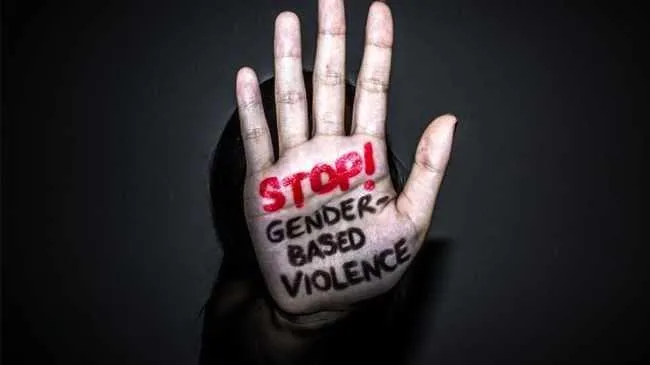DA Gauteng demands safety and economic empowerment for women
Women’s Month

As the DA, we have called for the establishment and expansion of dedicated, well-trained police units focused solely on GBV and sexual offences, including a GBV case tracking system to ensure cases are monitored from start to finish.
Image: Supplied
As South Africa commemorates Women’s Month, we are reminded not only of the monumental contributions women have made to building our democracy and shaping our country but also of the persistent struggles they face daily in their homes, communities, workplaces, and public spaces. From poverty and homelessness to gender-based violence (GBV) and systemic inequality, women continue to bear the brunt of societal failures.
The Democratic Alliance (DA) in Gauteng recognises these struggles and demands urgent, tangible action to create a society where women are not locked out of economic opportunities, where they feel safe, are empowered and can live without fear or barriers towards their progress. For years, women have fought to be heard, seen, and valued in every aspect of South African life. Yet, our country continues to fail them.
Even with democracy, their voices are still sidelined, their safety is still not guaranteed, and the systems meant to protect them are failing. GBV is not a rare occurrence; it is a daily threat. The rate of femicide is one of the highest in the world. Women are killed at five times the global average. This is not normal; it is a national crisis.
The DA Gauteng has consistently raised the alarm on the state of GBV and the failure of government systems to protect survivors. Support services meant for survivors of violence are in a dire state.
Victim Empowerment Centres are supposed to be safe spaces, but many are poorly run, underfunded, and remain inaccessible to those who need them most. Survivors of abuse are frequently met with secondary victimisation, turned away due to a lack of resources or left to wait for weeks for basic services.
That is not the care we envisage for our women. Another reality that gets little attention is the rise in homelessness among women, especially those trying to escape abuse. There are too few shelters, and those that exist are overwhelmed. The government must invest in safe, long-term housing solutions.
This includes stronger links between social workers, law enforcement and health services. No woman should be forced to choose between violence and sleeping on the street. We cannot ignore how economic exclusion leaves young women even more vulnerable.
In the first quarter of 2025, 37.5% of young women aged 15 to 24 were not in education, employment, or training. This is higher than the figure for young men, which was 36.7%. These numbers are not just statistics. They represent women who cannot put food on the table, who are stuck in violent homes, or who are unable to break the cycle of poverty.
According to the 2024 General Household Survey, 40.4% of children lived with their mothers, while only 4.6% lived with their fathers. It is women who carry the bulk of the caregiving in South Africa. It is women who stretch every rand to feed their children.
Yet 19.4% of households in Gauteng reported that their access to food was either inadequate or severely inadequate. We cannot talk about empowering women without addressing the realities they face at home.
Despite the many challenges they face, women are not just victims. Women are organisers, builders, and problem solvers. They run households, hold communities together and drive change. For South Africa to succeed, we need to put women at the centre of decision-making.
We must remove the barriers to education, jobs, business opportunities and leadership. This means clear policies, direct investment, and proper follow-through. The time for empty rhetoric and dialogues without substance or solutions is over. When the system fails, we need immediate and practical action.
The DA recently noted with concern that the SAPS did not include any GBV or crimes against women and children in their latest quarterly crime stats. That information is not optional. Without accurate data, we cannot plan, we cannot budget, and we cannot hold anyone accountable. We cannot continue to make empty promises while women are being beaten, raped, and killed daily.
Every Women’s Month, we hear the same speeches, but the pain remains. The DA has called for better policing, tighter court processes and harsher punishment for repeat offenders. We have pushed for the full implementation of the National Strategic Plan on GBV, with ring-fenced budgets and timelines.
Presently, fears of a serial killer are mounting in Pretoria after the burned body of a woman was discovered near Waltloo train station. This marks the fifth woman found murdered in the east of Pretoria since June.
As the DA, we have called for the establishment and expansion of dedicated, well-trained police units focused solely on GBV and sexual offences, including a GBV case tracking system to ensure cases are monitored from start to finish. Investing in women is a necessity. Research shows that when women have income, households are fed. When women are in leadership, communities develop.
When women are protected, the whole society becomes stronger. This is why we need targeted employment initiatives for young women, and we must remove the barriers that lock them out of economic opportunities.
This Women’s Month, we must commit to going beyond commemoration. The DA stands firm: South Africa needs a future where women are not only protected but also empowered to lead, thrive, and shape the society we all deserve.
is about confronting the daily injustice they live with and doing something real to change it. It is about building a future where every woman is safe, strong, and supported. The time for talk has passed. Now is the time to act.
Crezane Bosch MPL, DA Gauteng Shadow MEC for Community Safety